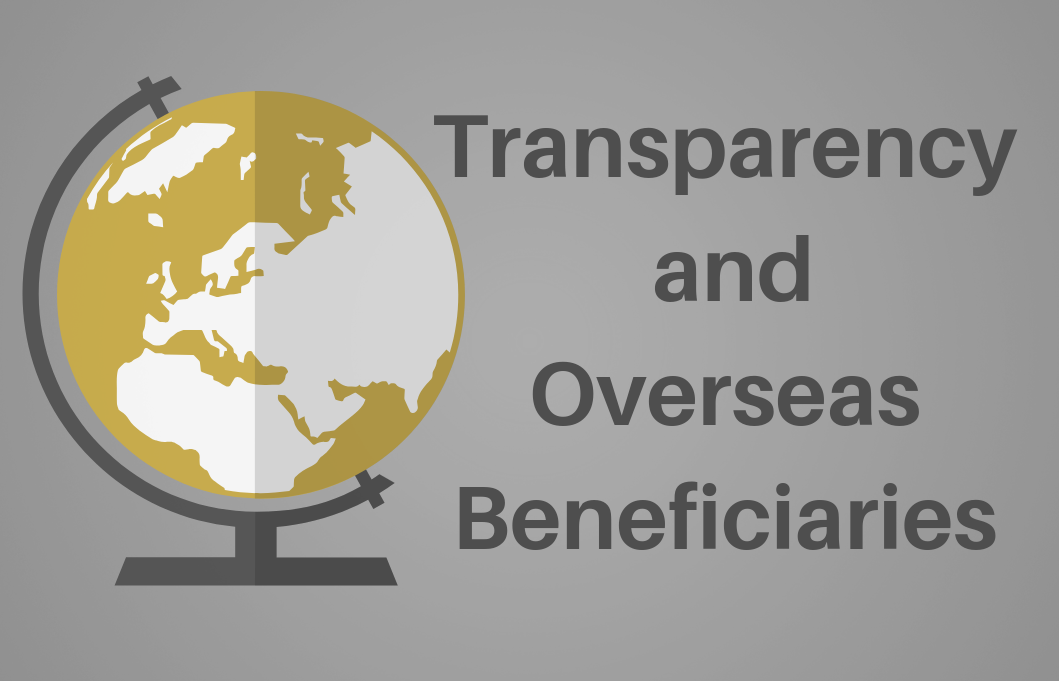Transparency for overseas beneficiaries

In April 2017 the UK government began a Consultation calling for evidence regarding the planned new register of beneficial ownership information for overseas legal entities. This is part of a broader push on transparency of ownership and follows the 2016 establishment of a central register of people that have significant control of UK companies (PSC Register).
The planned new register is intended to be broader than the PSC Register and will require the registration of (a) new purchases of, or acquisitions of long leasehold interests in, UK property; or (b) any sale, long lease or mortgage of UK property already owned by an overseas entity. As with the PSC the intent is to make the job of enforcement agencies easier and to discourage criminals and the corrupt from choosing to hide or launder their money in the UK.
Notably, this will be the first register of its kind in the world, so the Government has had to proceed with caution. Nevertheless, the results could be quite sweeping, and could impact on a significant number of overseas owners of UK property.
The Consultation has recently concluded, with the Government publishing a response to the call for evidence in March 2018. The response sets out how the Government plans to implement the register in the light of the responses to the consultation process. A draft Bill is intended to be published for this summer with a target date of 2021 for the register to be operational by. The new register’s requirements are intended to encompass all legal forms which can hold property. Notably this includes trusts. However, flexibility will be ensured to permit appropriate exemptions, such as where there is transparent beneficiary information already. For practical reasons, all leases of registrable duration will also be included. Entities unable to give information about their beneficial owners will be asked to provide information about their managing officers.
The definition of beneficial owner for the new overseas register will be aligned to the definition of PSC in the PSC regime. A PSC is someone who holds more than 25% of a company’s shares or voting rights, has the right to appoint or remove the majority of the board members or trustees, and/or has significant control over a company or trust. Adaptions are provided for differing foreign legal entities.
The information required under the new register will also be equivalent to that required under the PSC register: name; date of birth; nationality; country, state or part of the UK where the PSC usually lives; service address; usual residential address; the date he or she became a PSC in relation to the company/trust; which conditions for being a PSC are met; and whether an application has been made for the individual’s information to be protected from public disclosure.
The system will have a robust enforcement mechanism, with the Government intending to introduce a system of statutory restrictions and of putting notes on the relevant land register, backed up by criminal offences. The Government is considering increasing the currently proposed (two year) frequency of the requirement to keep information on the register updated and are intending to make failure to update in the requisite time a criminal offence.
For overseas entities buying property after the register is in force, the Government intends to allow beneficial interest but not legal title to pass to an overseas legal entity that does not have a valid registration number at completion or settlement.
Regarding procurement, the Government is (in absence of further evidence) intending to require the preferred supplier to provide its beneficial ownership information as a condition of being awarded the contract but does not intend to make it a requirement for all bidders. The Government does not intend to make bidders who provide misinformation or fail to update information subject to penalties, preferring to rely on contractual mechanisms given the relatively short duration of contracts compared to periods of property ownership.
Concerning other issues raised by the responses (such as third party protection, the balance between the policy goal and protection of individuals, and whether the register should be public as intended by the Government) the Government has indicated that it believes its proposals to be appropriate.
